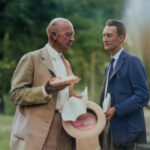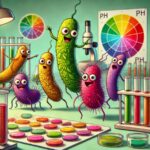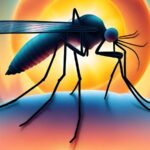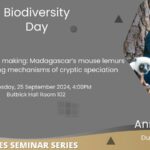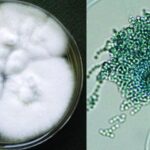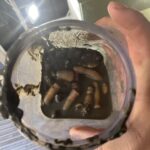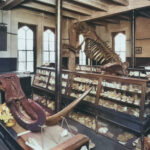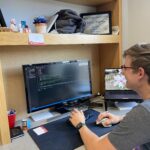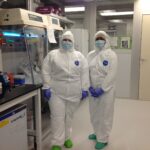News & Events
Ken Catania to Present Evolution-focused, Spooky Halloween Talk
Oct. 1, 2024—By Danielle Bowden, Evolutionary Studies administrative specialist Nashville, TN –– Vanderbilt University’s Evolutionary Studies Initiative is thrilled to announce that distinguished evolutionary biologist Kenneth Catania will be delivering the Halloween Spooktacular Lecture as part of the ESI seminar series. Catania is a professor of Biological Sciences at Vanderbilt University. The lecture, titled “Science Lessons from...
The Legacy of Chancellor Kirkland: Education, Evolution, and the Scopes Trial
Sep. 27, 2024—By: Neomi Chen, Evolutionary Studies communications assistant Chancellor James Hampton Kirkland was a significant figure in the education landscape of the early 20th century, particularly recognized for his leadership of Vanderbilt University after the 1925 Scopes Trial. His views on evolution and education were instrumental in shaping the discourse around these topics at Vanderbilt University...
Mitochondrial DNA Evolution: New Study Reveals How Selfish mtDNA Evolve and Thrive
Sep. 20, 2024—By Andy Flick, Evolutionary Studies scientific coordinator Vanderbilt University researchers, led by alumnus Bryan Gitschlag, have uncovered groundbreaking insights into the evolution of mitochondrial DNA (mtDNA). In their paper in Nature Communications titled “Multiple distinct evolutionary mechanisms govern the dynamics of selfish mitochondrial genomes in Caenorhabditis elegans,” the team reveals how selfish mtDNA, which can...
Evolved in the Lab, Found in Nature: Uncovering Hidden pH Sensing Abilities
Sep. 20, 2024—By Andy Flick, Evolutionary Studies scientific coordinator In a groundbreaking study led by Sarah Worthan, Ph.D., a postdoctoral researcher in the Behringer Lab at Vanderbilt University, scientists have successfully evolved microbial cultures that possess the ability to sense pH changes, enabling rapid responses to environmental fluctuations. Along with highlighting the power of lab-driven evolution, this...
Vanderbilt Researchers Find Warming Quickens Aging-Related Mortality in Mosquitoes
Sep. 19, 2024—By Andy Flick, Evolutionary Studies scientific coordinator Mosquitoes tread a thinning line in warming climates, where aging accelerates and infections intensify. New research shows that warming and aging act as a one-two punch, lowering mosquito lifespans and fanning the flames of bacterial infections. These findings highlight how climate change could alter the risks of disease...
Distinguished Evolutionary Biologist Anne Yoder to Deliver Annual Biodiversity Day Lecture
Sep. 12, 2024—By Danielle Bowden, Evolutionary Studies administrative specialist Nashville, TN –– Vanderbilt University’s Evolutionary Studies Initiative is thrilled to announce that distinguished evolutionary biologist Anne Yoder will be delivering the annual Biodiversity Day Lecture. Yoder is widely recognized for her groundbreaking research on the genetics and speciation of Madagascar’s lemurs, which has transformed our understanding of...
Vanderbilt Anthropologist Explores How Different Childcare Models Affect Child Health in Working Families
Sep. 12, 2024—By Andy Flick, Evolutionary Studies scientific coordinator A new study co-authored by Monica Keith, Assistant Professor of Anthropology, provides insights into how different childcare models affect child health outcomes in working families. The research, focused on subsistence-based, semi-nomadic Shodagor communities in Bangladesh, highlights the crucial role of maternal care and effective substitutes in maintaining child...
Researchers Discover Wide Variation in Virulence of Non-Pathogenic Fungi
Sep. 11, 2024—By Andy Flick, Evolutionary Studies scientific coordinator A new study led by research assistant professor David Rinker sheds light on how fungal pathogenicity might evolve. The article, “Strain heterogeneity in a non-pathogenic Aspergillus fungus highlights factors associated with virulence,” was published in the journal Communications Biology in September 2024. According to Rinker, “different isolates or...
Graduate Student Sheds Light on Ancient Worms as Early Ecosystem Engineers
Sep. 10, 2024—By Andy Flick, Evolutionary Studies scientific coordinator Graduate student Kat Turk from Vanderbilt University’s Department of Earth and Environmental Sciences, along with an international team of collaborators, has uncovered new evidence that ancient priapulid worms, through their burrowing behavior, may have been some of the earliest ecosystem engineers. The study, “Priapulid neoichnology, ecosystem engineering, and...
Researchers Discover the Evolution of Seasonal Anticipation in Cyanobacteria
Sep. 6, 2024—By Andy Flick, Evolutionary Studies scientific coordinator Being able to correlate changes in day length with seasonal weather patterns is crucial for many organisms to adapt to their environments. Trees shed their leaves, arctic foxes grow thicker coats, and bears prepare for hibernation. But what about smaller, short-lived organisms? New research led by BBSRC Discovery...
Rediscovering the Lost Plesiosaur (Cast): Restoring Vanderbilt’s Natural History Museum
Aug. 27, 2024—By: Andy Flick, Evolutionary Studies scientific coordinator Embarking on a new research project often brings unexpected discoveries—some intriguing, some novel, but rarely a find of a lifetime. Such a remarkable discovery occurred when university archivist and associate director Kathy Smith stumbled upon a pile of plaster, hidden away for 60 years in a dim, cluttered...
VU Graduate Student Uses Satellites to Provide Critical ALAN Data for Public Policy
Aug. 9, 2024—By: Alexandria Leeper, Evolutionary Studies Graduate Communications Assistant Imagine you are trying to stargaze. You live in a suburban area where there are little streetlamps, and the darkness of the night envelops most of the sky, making the stars visible. However, you are adjacent to a major city. When you turn your gaze towards that...
Analyzing Evolutionary Trade-Offs in Immune Systems: Computational Biology with Reese Martin
Jul. 22, 2024—By Nick McCoy, Evolutionary Studies undergraduate communications assistant Reese Martin has always been drawn to biology and exploring the behaviors of different organisms. During his childhood, he dug in anthills, and now he observes the life history traits of flower beetles and other taxa. Martin’s new first-author paper, “Pleiotropy Alleviates the Fitness Costs Associated With...
VU Graduate Student Explores Ancient Oral Microbiomes
Jun. 24, 2024—By Neomi Chen, Evolutionary Studies undergraduate communications assistant As Katie McCormack meticulously extracted calcified dental plaque from ancient Peruvian teeth, she felt the weight of centuries of history in her hands. This intricate work, part of her groundbreaking research in the Jada Benn Torres Lab, aims to unravel the secrets of ancient oral health. With...
Graduate Student Uncovers New Galactose Assimilation Pathway
Apr. 26, 2024—By: Andy Flick Evolutionary Studies Scientific Coordinator Not to be outdone by her significant contributions to a study that appeared in April 25’s Science magazine, Marie-Claire Harrison, a graduate student in the Rokas Lab, published a first-author article in the journal Proceedings of the National Academy of Sciences the very next day titled “Machine learning...

